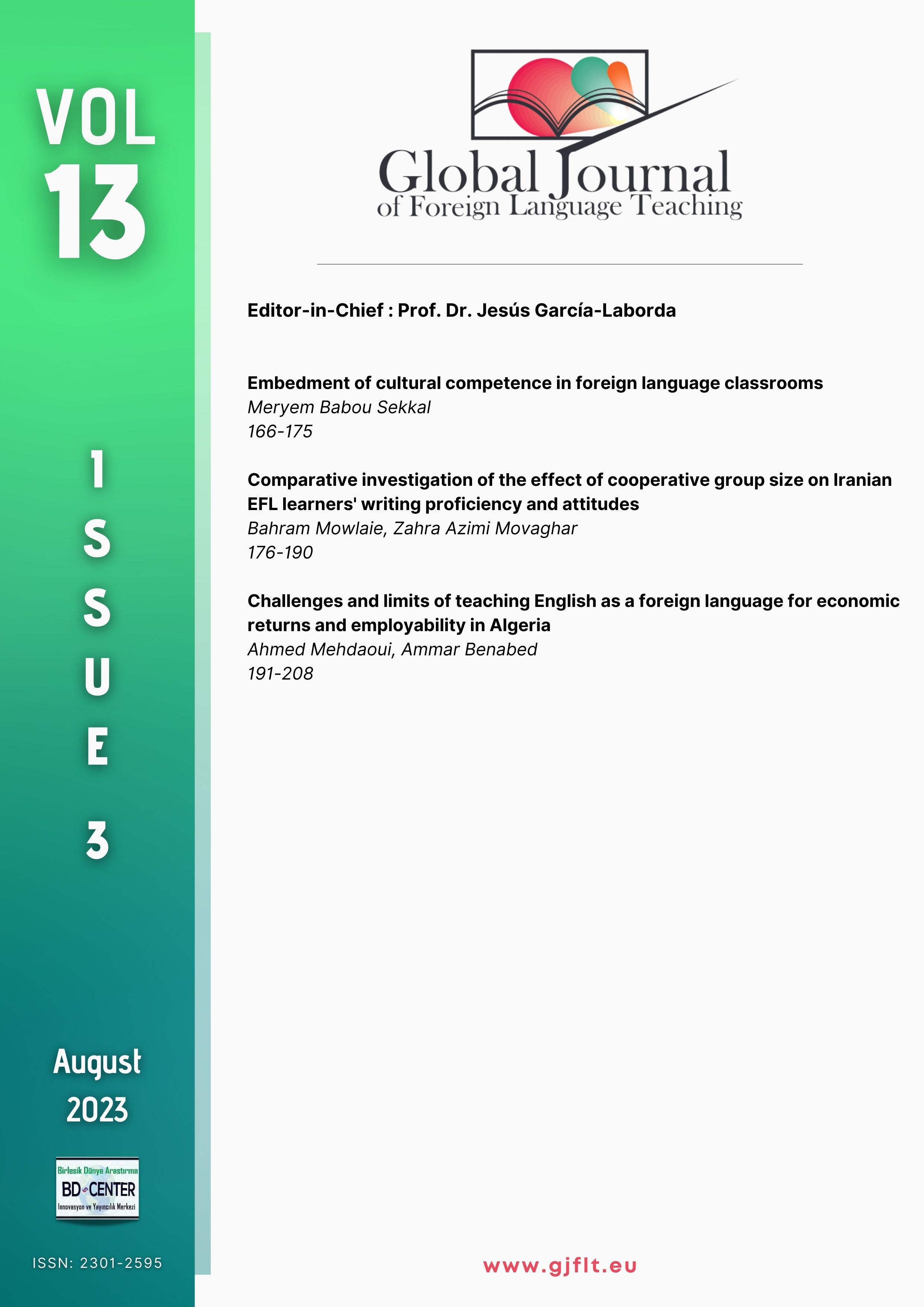Comparative investigation of the effect of cooperative group size on Iranian EFL learners' writing proficiency and attitudes
Main Article Content
Abstract
This study scrutinized the comparative effect of cooperative group size (pair-work vs. group work) on Iranian EFL learners’ writing proficiency and their attitudes towards this form of learning. To do this, 60 homogenized participants took part in this study and they were randomly assigned to two experimental groups (20 in pair-work, and 20 in group work) and one control group (20 participants). Before the treatment, they all had one writing task which was used as the retest. The experimental groups went through collaborative writing and the control group was based on the usual mainstream class procedure for 10 writing topics chosen based on their preferences. They all had the final writing task after treatment which was used as the post-test. The result of the independent samples t-test showed that pair-work and group did have a positive effect on the writing, but pair-work turned out to be more efficient than group work. In the interview section, it was revealed that the main reason was the dynamism of the group and the structure of the interaction among the peers in the pair work and the group work that made the difference.
Keywords: Attitudes; cooperative group size; EFL learners; writing proficiency
Downloads
Article Details

This work is licensed under a Creative Commons Attribution-NonCommercial-NoDerivatives 4.0 International License.
Authors who publish with this journal agree to the following terms:- Authors retain copyright and grant the journal right of first publication with the work simultaneously licensed under a Creative Commons Attribution License that allows others to share the work with an acknowledgement of the work's authorship and initial publication in this journal.
- Authors are able to enter into separate, additional contractual arrangements for the non-exclusive distribution of the journal's published version of the work (e.g., post it to an institutional repository or publish it in a book), with an acknowledgement of its initial publication in this journal.
- Authors are permitted and encouraged to post their work online (e.g., in institutional repositories or on their website) prior to and during the submission process, as it can lead to productive exchanges, as well as earlier and greater citation of published work (SeeThe Effect of Open Access).
